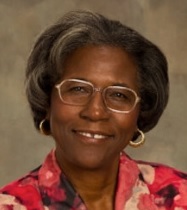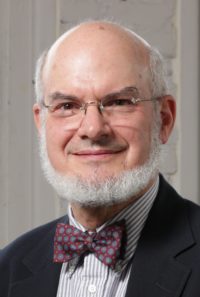 Josephine McNeil, an attorney and longtime member of the Clearinghouse Board of Directors, will never forget the time she was working on an affordable housing project for the city of Newton when a woman approached her and said, “I think what you’re doing is wonderful, but I just don’t think you should do it here.”
Josephine McNeil, an attorney and longtime member of the Clearinghouse Board of Directors, will never forget the time she was working on an affordable housing project for the city of Newton when a woman approached her and said, “I think what you’re doing is wonderful, but I just don’t think you should do it here.”
She laughs now as she recounts the story, but it’s a prime example of the mindset she has fought over the past twenty years as a co-founder, board member, and, later, the executive director of CAN-DO (Citizens for Affordable Housing in Newton Development Organization).
Now, after two decades overseeing CAN-DO’s creation of nearly 50 affordable housing units in Newton, Josephine is finally preparing to retire. But don’t expect to find her on a beach after she leaves the organization in July; she and the CAN-DO Board already have big plans for her next project: a legacy fund established in her name, created to provide support services to CAN-DO tenants.
Helping children and families has always been one of Josephine’s biggest motivators. It’s a cause she has cared about for years, and it’s what inspired her to first leave her job at a major law firm back in 1992, when she went to work for a real estate developer who was trying to make connections with local tenant organizations.
By 1994, Josephine was working as a consultant on affordable housing development projects and serving on the board of the Newton Community Development Foundation (NCDF), when the city approached NCDF about creating an organization that would meet the necessary guidelines to receive affordable housing funds from the federal government’s new HOME program. Josephine, a few other board members, and a number of tenants teamed up, created CAN-DO, and got to work.
When she looks back, Josephine says she is most proud of CAN-DO’s growth. By 1999, they had only produced 3 affordable units, but since then they have completed twelve small-scale projects, creating housing for very low and low-income residents of Newton and surrounding communities.
It’s not only the units themselves that have an impact on CAN-DO’s tenants. Josephine is a firm believer in the importance of developing affordable housing in affluent communities such as Newton, where low-income families benefit from good schools and safe neighborhoods.
“To have a child living in an environment where, even if they have housing, they have to worry about drive-by shootings, gun violence, or any of those things, takes a toll on children and what they’re able to accomplish,” she says.
But it hasn’t always been easy to get everyone on board. There’s still a stigma against affordable housing and people often worry about how it will affect them and their lifestyles.
“You go to the community meetings and people talk about traffic and this and that,” Josephine says. “I sometimes say to people, ‘What are you willing to give up for a child to have a home? Could you sit in traffic for another five minutes? Would that really kill you?’”
In Josephine’s eyes, the state and federal government still have work to do as well. She says in her many decades in the affordable housing sector, she still sees a reluctance to invest in affordable housing development and other supportive services that enable people to truly escape the cycle of poverty. This reluctance, she says, will lead to greater costs for society, as more children grow up without the crucial platform that is stable housing.
“We need to be willing to recognize what the real cost is,” she says. “And there is going to be a cost to society; if you have thousands of children growing up in these circumstances, not getting a good education, then what happens to them? We keep perpetuating this cycle.”
This worry is what inspired Josephine and the CAN-DO Board to create her legacy fund. Too often, they would see tenants receive housing only to lose it again when they couldn’t keep up with bills or access needed services. Josephine hopes the fund will enable tenants to really start to move forward and create better lives for themselves and their children.
In late June, Josephine will join women from around the state at an event put on by the Massachusetts Commission on the Status of Women, where they will be recognized as Unsung Heroines for their “previously unnoted yet valuable community contributions.” A few weeks later, she will pack up her desk at CAN-DO, as her formal role at the organization comes to an end. And while she has no current plans for world travel (she says perhaps next year), she’s energized and ready to get back to building her legacy fund and working to give more children and families the boost they need to get, and stay, ahead.
“That’s my new goal in life,” she says.


